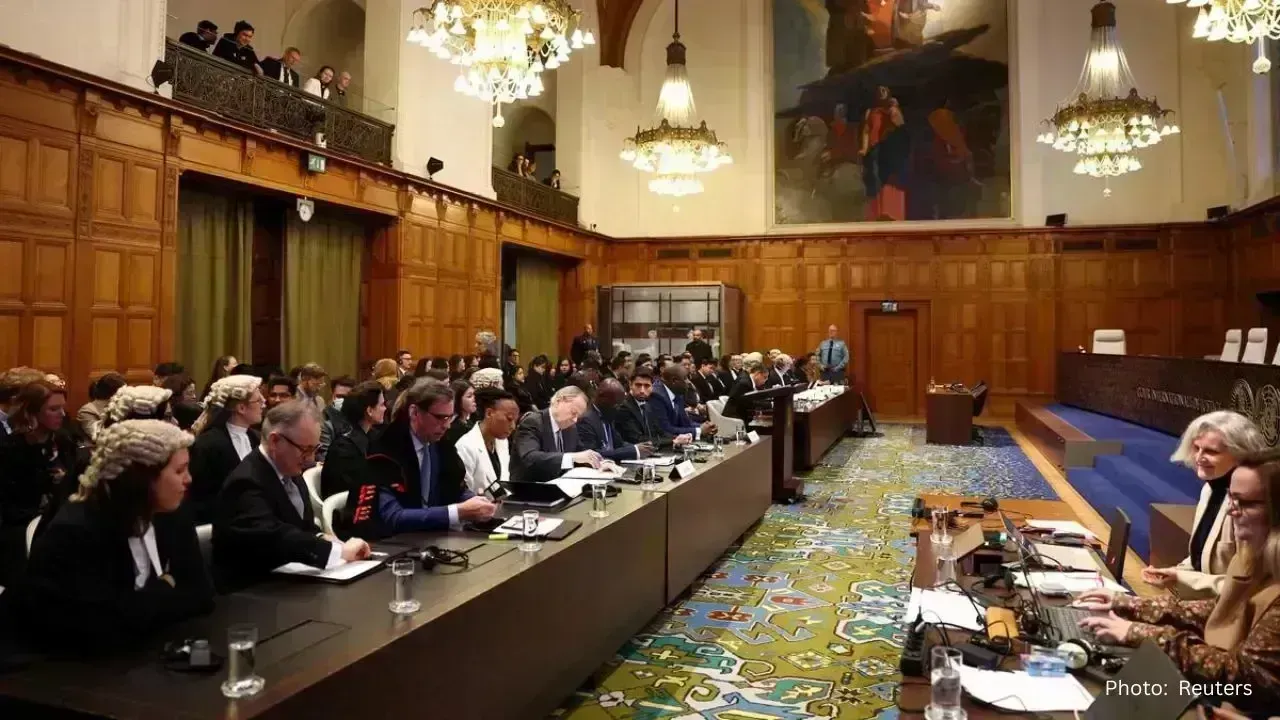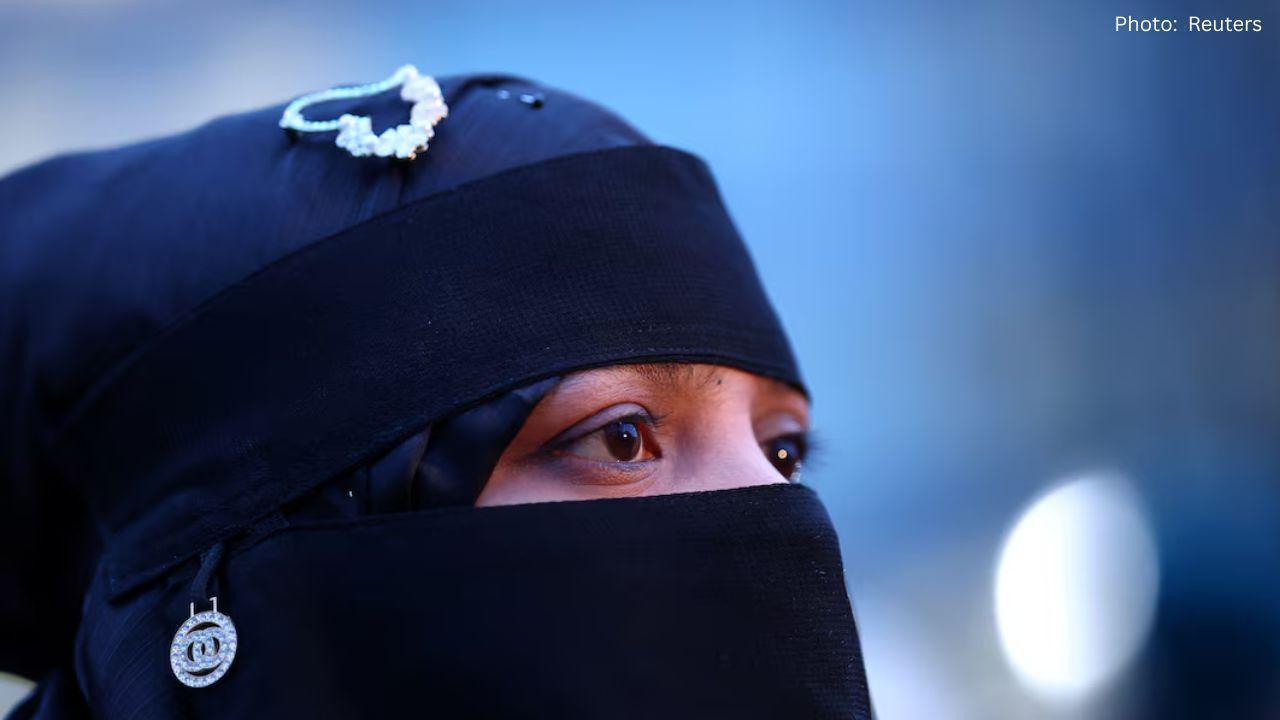You have not yet added any article to your bookmarks!

Join 10k+ people to get notified about new posts, news and tips.
Do not worry we don't spam!

Post by : Jyoti Gupta
Photo:Reuters
The United States government has taken a major step that could redefine how foreigners are allowed to live, study, and work in the country. President Donald Trump’s administration announced this week that immigration officers will now examine not just the legal documents of applicants but also their social media activity, political views, and personal beliefs before granting visas, permanent residency, or citizenship.
Officials described this as part of a broader effort to ensure that “America’s benefits are reserved for those who respect the country.” But critics fear the new approach could blur the line between security screening and political censorship.
What the New Rules Mean
The U.S. Citizenship and Immigration Services (USCIS), the federal agency responsible for handling immigration applications, confirmed that the scope of background checks will be widened. Traditionally, checks focused on criminal records, financial stability, and family connections. Now, officers will also look at whether applicants hold what are described as “anti-American” or “antisemitic” ideologies.
This includes:
* Reviewing social media posts from platforms such as X (formerly Twitter), Facebook, Instagram, or TikTok.
* Monitoring online activism, including participation in protests or public demonstrations.
* Assessing whether an applicant has expressed hostility toward the United States or its allies, particularly Israel.
Agency spokesperson Matthew Tragesser explained the reasoning in blunt terms: “Immigration benefits – including to live and work in the United States – remain a privilege, not a right. America’s benefits should not be given to those who despise the country and promote anti-American ideologies.”
A Historical Law with New Relevance
The administration says its approach is grounded in the Immigration and Nationality Act of 1952. When the law was first passed, the focus was on preventing communists and suspected Soviet sympathizers from entering the United States during the Cold War.
But in today’s climate, the Trump administration is applying the term “anti-American” to a broader set of beliefs. While communism is no longer the primary concern, officials now highlight anti-Israel sentiment, antisemitism, and criticism of U.S. foreign policy as threats that justify stricter immigration decisions.
Impact on Students and Universities
The policy has already had real-world consequences. The U.S. State Department confirmed that more than 6,000 student visas have been revoked since Secretary of State Marco Rubio assumed office earlier this year. Many of those affected were students accused of engaging in protests linked to the war in Gaza or of publicly criticizing U.S. foreign policy decisions.
Universities across the country have expressed alarm. For decades, the U.S. has been a top destination for international students, attracting young people with promises of world-class education and opportunities. But campus leaders now worry that freedom of speech—a cornerstone of academic life—is under threat.
Some faculty members argue that universities should be places where difficult conversations can happen without fear of punishment. They warn that revoking visas based on political views may discourage students from speaking openly, stifling debate and damaging the reputation of U.S. higher education.
Critics Raise Constitutional Concerns
Civil rights groups and immigration advocates are questioning whether the new rules are constitutional. They point to the First Amendment, which guarantees freedom of speech, and argue that denying someone a visa because of their political opinion violates those principles.
Legal scholars warn that the policy could face court challenges. The biggest concern is that the definition of “anti-American” is vague and subjective. One immigration officer might see a post criticizing U.S. military action as legitimate dissent, while another might label it “anti-American” and use it to deny an application.
There are also concerns about bias in enforcement. Observers note that the administration appears especially focused on criticism of Israel, while other forms of hate speech—such as white supremacist ideology—receive less attention. Critics argue this selective approach undermines fairness and could disproportionately target students and immigrants from Muslim-majority countries.
Supporters Defend the Policy
Supporters of the policy argue that the U.S. has the right to be cautious about who it allows to stay within its borders. They believe that in an age of global terrorism, online radicalization, and rising antisemitism, social media posts can reveal dangerous intentions that traditional background checks miss.
They also stress that immigration is not a guaranteed right. In their view, the U.S. is justified in choosing only those who align with its values and who are unlikely to promote unrest or hatred once inside the country.
A Digital Age of Immigration Scrutiny
One of the most striking aspects of this new rule is its reliance on digital footprints. In the past, an applicant’s past actions were judged mostly through official records—criminal files, employment history, or family background. Now, even a tweet from years ago could influence whether someone is granted a visa.
This raises practical challenges. Millions of people post casually on social media, sometimes without serious intent. Immigration officers must now decide which posts signal a real risk and which are just expressions of free opinion. The potential for mistakes—or for decisions driven by personal bias—is high.
Global and Diplomatic Implications
The policy could also have international consequences. Foreign governments, especially those with strong student exchange programs with the U.S., may raise concerns if their citizens face discrimination or mass visa cancellations.
There is particular sensitivity around the Middle East. With the U.S. government equating criticism of Israel with antisemitism, applicants from countries with long-standing political disputes with Israel may find themselves under closer scrutiny. This could strain America’s relations with nations in the Arab world and beyond.
The Bigger Picture
This development is part of a broader pattern. Since taking office, the Trump administration has repeatedly tightened immigration rules. From travel bans to stricter asylum requirements, the message has been clear: the U.S. wants to control not just who enters the country but also what they believe.
For many, this represents a major shift in how the U.S. defines itself. The country has long described itself as a land of opportunity, open to diverse ideas and cultures. But the new approach suggests that ideological loyalty—defined by the government of the day—may now be as important as education, skills, or family ties.
The expansion of immigration vetting to include social media and political views is one of the most far-reaching changes in recent years. It combines questions of national security, freedom of speech, academic freedom, and foreign relations in a way that will shape the lives of thousands of people.
For supporters, it is a necessary step to keep America safe. For critics, it is a dangerous attempt to police thought and silence dissent.
Either way, the policy sends a clear message: in today’s America, what you say online—and what you believe—could determine whether you are allowed to call the country your home.










Indian Idol 3 Star Prashant Tamang Passes Away in His Sleep
Beloved singer-actor Prashant Tamang dies naturally in sleep. Fans and family pay emotional tributes

World No.1 Aryna Sabalenka Begins Australian Open Without Title Defence
World No.1 Aryna Sabalenka starts her Australian Open campaign as favourite, but without a defending

EU-India Free Trade Deal May Be Signed This Month, Says Merz
German Chancellor Merz hints at a possible EU-India free trade agreement signing by January end afte

Japan Expands Security Aid Across Southeast Asia with $147M Boost
Japan doubles OSA budget to $147M, expanding military support to ASEAN nations, boosting regional se

Eruption of Mount Semeru: Pyroclastic Flow Extends 5 km, Ash Clouds Reach 2 km
Mount Semeru erupted at 10:25 p.m., producing a 5 km pyroclastic flow and a 2 km high ash column. Re

Deadly Bushfires in Victoria Leave One Dead, 300 Structures Lost
Bushfires across Victoria have destroyed hundreds of homes, claimed one life, and forced evacuations